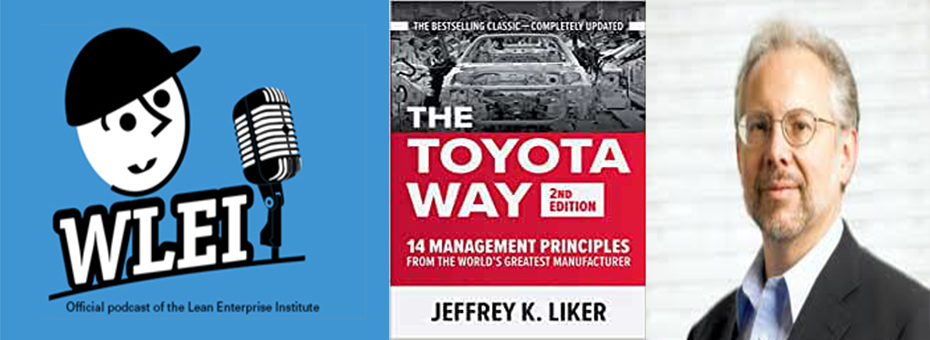Professor Jeffrey Liker’s The Toyota Way: 14 Management Principles From the World’s Greatest Manufacturer has proved to be one of the most influential books of the lean movement—and beyond. He has just published a revised second edition of this classic resource that brings new thinking and context to his explanation of what makes this system so dynamic and enduring. Liker explains his emphasis on what scholar Takahiro Fujimoto calls its “superior evolutionary learning capability,” providing more grit and clarity on topics such as its organic (not mechanistic) nature. Listen to him discuss these topics with LEI Senior Editor Tom Ehrenfeld in this new edition of the WLEI podcast.
Here are some highlights from this conversation:
“If you’re interested in contributing to society, you have to think long-term…A company’s reason to invest in its people is because they’re thinking about the long-term, and there may not be an immediate financial return for a unit of employee training. But they believe that developing employees is the key to having better products, and customers being more willing to be a customer for life.”
“The purpose of Hoshin Kanri for Toyota is to have a line direction, because they have worked hard at developing people who can continuously improve, and who have the skills of continuous improvement. There’s energy and competence to work toward goals. Once you have that, then the question is how do you align those goals like a laser beam, and focus the energy? That becomes very powerful when it’s focused on specific challenges, specific goals.”
“At Toyota people development and process improvement go hand in hand.”
“Taiichi Ohno was a natural teacher. And he figured out that people are going to learn by doing and struggling. And he would put his students in difficult positions, with a seemingly impossible challenge, and then he’d let them struggle.”
“For Toyota, NUMMI was not setting up a plant to make cars, it was setting up a laboratory in the natural environment of the United States, in order to learn.”
“If the world is really complex, you might think I need an equally complex set of tools to address it. Whereas Toyota’s common sense is, if the world’s very complex, I better have a very simple set of tools, because I don’t want to have complexity trying to change complexity.”




Dr. Liker emphasizes the importance of continuous improvement, respect for people, and a systematic approach to problem-solving. His insights have had a significant impact on organizations seeking to adopt Lean principles to enhance efficiency and quality.